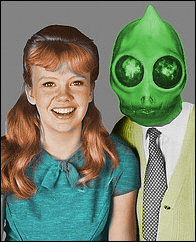 Recently I received a number of on-demand printed advertisements along with the usual coupons I receive at the check stand of the store I regularly buy my groceries from. Here is a slightly manipulated actual ad that is generated from the coupon dispensing machines. As usual, I have removed the actual store name and logo and replaced it with a fictitious business name.
Recently I received a number of on-demand printed advertisements along with the usual coupons I receive at the check stand of the store I regularly buy my groceries from. Here is a slightly manipulated actual ad that is generated from the coupon dispensing machines. As usual, I have removed the actual store name and logo and replaced it with a fictitious business name.
After paying for my groceries the coupon printer actually dispensed two of these ads along with my receipt and a couple of other coupons.
The printed advertisement from the store makes the claim that organic products are beneficial for the consumer and for the ecology of the planet Earth. This is an assertion that looks and sounds good and makes the consumer feel better about what they buy even though the term "organic" does not necessarily mean something is healthier to eat. It refers primarily to the required processes used to produce a product that is certified as organic in origin (which can be quite liberal in definition).
While the claim that organic products are superior to other foodstuffs may be true any environmental gains from organic farming must surely be negated by the obscene amounts of paper waste generated to proclaim said benefits.
The distance between the public relations claims of a company and their vendors committing to being 'green' issued from the rarefied heights of the Boardroom and the street-level reality can be measured by the the many miles of paper spam generated at the cash register.
Do the math: One 6-inch ad x an average 3000 customers per store x 2400 stores nationwide.
Related post: Waste Lots, Want Not.
Sunday, February 28, 2010
Good For You and the Earth
Posted by
Sleestak
at
2/28/2010 06:00:00 AM
![]()
![]()
Labels: advertising, environment, fail, Grocery Store Artifact, Hayley Mills, truth to power
Subscribe to:
Post Comments (Atom)



























But it's green waste, don't you see?
ReplyDeleteYou know what's good for the earth? Open-casket burials. Almost everything else mankind does is bad for it. Luckily, the planet can look forward to being consumed by the Sun in a few billion years. Which it will endure with the same indifference it tolerates everything else.
ReplyDelete